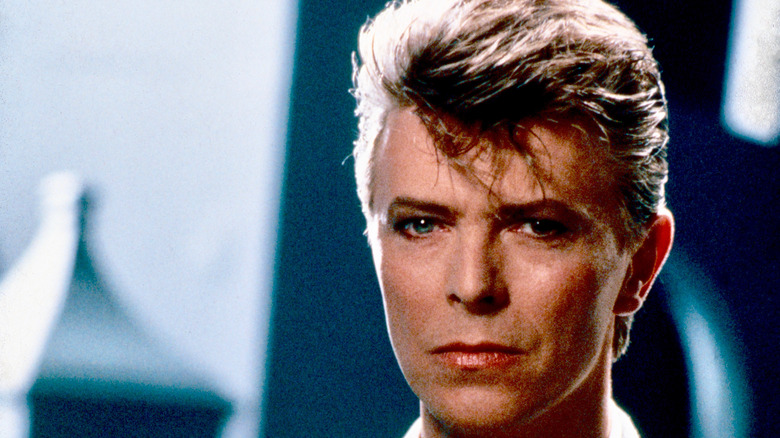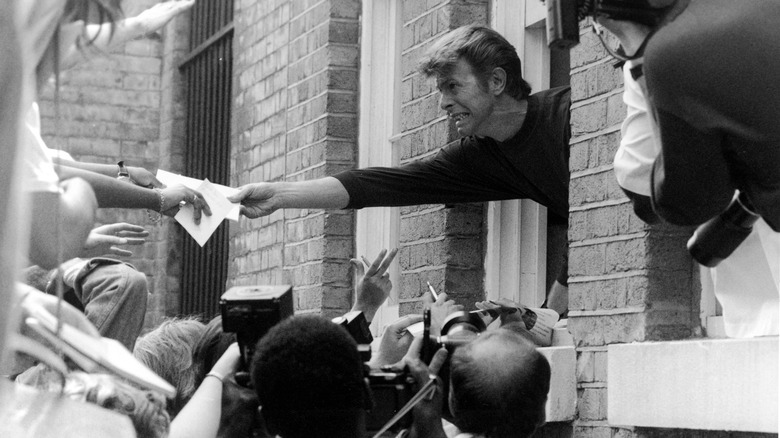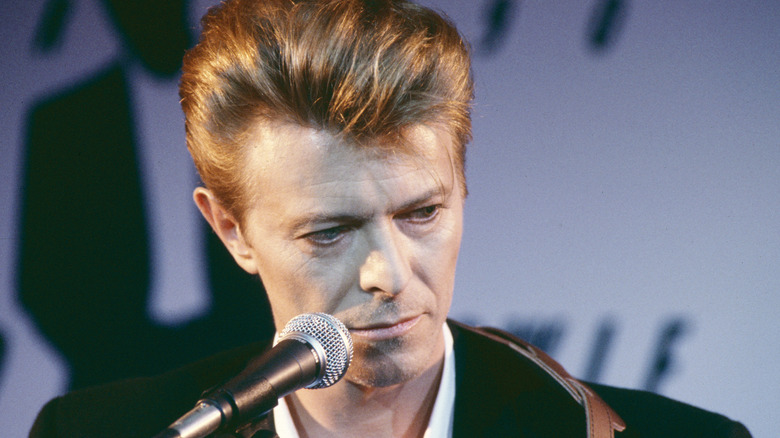The Bizarre Truth About David Bowie's Internet Service Provider
Long before artists used the internet as a way to reach and connect with fans, David Bowie had already done so. In the 1990s, the internet was not a staple in households, and by 1998, per The World Bank data, only 30% of the United States population was using the internet. It was that same year when Bowie decided to launch his own internet service provider.
On September 1, 1998, Bowie, together with UltraStar Internet Services, launched BowieNet. It holds the Guinness World Record title of the first artist-created internet service provider. Ron Roy — UltraStar's founder — recalled how the idea came to be. In 1996, Roy had a meeting with Bowie's manager where he pitched the idea of an internet fan club and ISP (Internet Service Provider). Bowie showed interest and even became UltraStar's first investor. Two years later, BowieNet was born. According to Roy, as reported by Ars Technica, Bowie was "very hands-on" in the creation of BowieNet.
Subscribers to BowieNet were given access to chat groups, news, and multi-player games, as well as a customizable home page and a personal email address with @daviedbowie.com. "I wanted to create an environment where not just my fans but all music lovers could be a part of the same community, a single place where the vast archives of music information could be accessed, views stated and ideas exchanged," Bowie said.
The inspiration behind BowieNet
The BowieNet subscription cost $19.95 monthly, and it came with some perks. Users were able to access the internet — just like a regular ISP — but the landing page was set to DavidBowie.com, where exclusive content is available. The subscription also came with 5 MB of storage. Those who wanted to gain access to exclusive Davie Bowie content but wanted to remain with their existing internet provider had to pay $5.95 monthly, according to Billboard.
Bowie did not only create BowieNet as an advertising tool for his music. He believed that the internet will have a big impact on how fans view artists' content (via The Guardian). "The actual context and the state of content is going to be so different to anything we can envisage at the moment — the interplay between the user and the provider will be so in simpatico it's going to crush our ideas of what mediums are all about," he said in an interview in 1999. Craig Carrington, who subscribed to BowieNet, said that it was a "groundbreaking" effort by Bowie. "He would never announce it in advance, but he would get on to the chat board and talk to us. The handle he always called himself by was Sailor," Carrington said to BBC.
The end of BowieNet
Although BowieNet was successful, not all David Bowie's fans were happy with the idea. Some said that fans who didn't subscribe to the ISP felt isolated, while others wished that Bowie just stuck to creating more music. Despite the opinions, however, there was no doubt that Bowie was ahead of his time (via BBC). "Back then, other rock star web pages were kind of cupboard sites that maybe had one picture of them and a little bit of text and that was it," Bowie's biographer, Chris O'Leary, stated.
More ISPs became available soon after, and the internet was larger than ever. With that, BowieNet slowly faded into the background. It was officially shut down in 2012 when Bowie posted a message on his official Facebook page that read, "Some say that it was a Mayan prophecy for 2012 and was forever thus. Others suggest it may have been deliberate sabotage by gremlins, finally successful after a sustained attack over many years. And one bloke said: 'Your big end's gone, mate, the whole thing's a write-off.' Whatever the truth, the old Bowienet, as we have known it, is kaput!"


